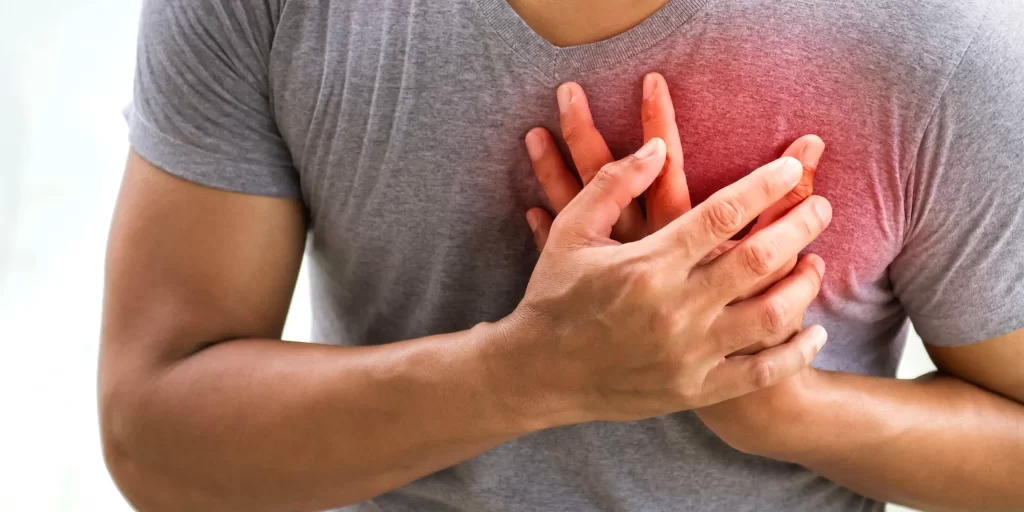Amphetamines Overdose – Effects, Symptoms & Treatment
Written by Renee Deveney
& Medically Reviewed by Dr. Deep Shukla, PhD, MS
Medically Reviewed
Up to Date
Last Updated - 6/17/2022
View our editorial policy
Amphetamines are psychostimulant drugs used at low doses to treat attention-deficit hyperactivity disorder (ADHD), obesity and narcolepsy. However, amphetamines have a high potential for abuse and are used recreationally for their ability to produce a euphoric high or to improve athletic or academic performance. An amphetamine overdose can occur regardless of dose, frequency of use or how the drug was taken and can have life-threatening consequences.
Amphetamine Overdose Amounts
Amphetamines can produce a toxic reaction regardless of the amount taken. An overdose with amphetamines can occur even at low doses and in first-time users. However, higher doses and increased frequency of use may increase the risk of an amphetamine overdose.
Taking amphetamines in a way that rapidly increases the amount of the drug in blood levels may also increase the likelihood of an overdose. The use of other substances such as alcohol, opioids or cannabis along with amphetamines can also increase the potential for toxic effects.
Amphetamine Overdose Symptoms
The symptoms of an amphetamine overdose can vary from person to person and involve both physical and psychological symptoms.
The physical signs of amphetamine overdose include:
- Nausea and vomiting
- Increased heart rate or tachycardia
- Chest pain
- Arrhythmias
- Hypertension
- Hyperthermia
- Sweating
- Dilated pupils
- Bruxism or uncontrollable jaw clenching
- Tremors
- Seizures
The psychological symptoms of amphetamine overdose include:
- Visual and auditory hallucinations
- Delusions experienced during psychotic events generally involve delusions of paranoia and reference
- Extreme anxiety and panic
- Agitation
- Excited delirium involving symptoms of confusion and agitation
Amphetamine Overdose Effects
The effects of amphetamine overdose may vary from person to person and may depend on the age of the individual and the frequency and dose of drug intake. Some of the common physical effects of amphetamine overdose are symptoms of sympathetic nervous system activation including chest pain, arrhythmia, seizures, difficulty breathing.
Chronic use of amphetamines may result in ventricular hypertrophy (thickening of the heart walls) and coronary artery atherosclerosis (plaque buildup in the artery). When this happens, the person may be more likely to experience other cardiovascular issues, such as arrhythmias and myocardial infarction, due to an overdose of amphetamines.
Some of the psychological effects of amphetamine overdose include increased confusion, agitation, hallucinations, paranoia and panic.
Dangers of Amphetamine Overdose
Some of the more severe effects of amphetamine overdose include hypertension, renal and liver damage or failure, hyperthermia, seizures and coma. An amphetamine overdose may also result in impaired judgment and increased risk-taking behavior.
Hyperthermia caused by amphetamines can increase the permeability of the blood-brain barrier resulting in the accumulation of fluids in the brain or cerebral edema. Brain edema can result in damage to brain cells that may be permanent.
An amphetamine overdose can lead to various cardiovascular issues such as myocardial ischemia and infarction, aortic dissection, brain hemorrhage and ischemic stroke.
Some of these changes caused by amphetamine overdose may have permanent effects including cognitive deficits, increased anxiety, deficits in cardiovascular function and impaired liver and kidney functioning.
Amphetamine Overdose Statistics
Statistics on amphetamine overdoses show a growing issue. The number of amphetamine-related hospitalizations increased from 69 visits per 100,000 adults in the U.S. in 2014 to 83.2 visits in 2015.
According to a CDC report:
- Psychostimulants, including amphetamines, MDMA and Ritalin, were involved in 10,333 deaths in 2017 compared to 7,542 deaths in 2016
- From 2015 to 2016, psychostimulant-involved death rates increased by 33%
- Out of all drug overdose deaths in 2017, almost 15% involved psychostimulants
- The Drug Abuse Warning Network report found that the number of emergency room visits involving methamphetamines increased from 64,117 in 2009 to 102,961 in 2011
Amphetamine Overdose Deaths
The major causes of amphetamine overdose deaths include cardiovascular toxicities, hypertension, seizures and hyperthermia. Some of these fatal cardiovascular issues include aortic dissection, myocardial infarction, hemorrhagic or ischemic stroke.
Other causes of death include respiratory failure and kidney failure. The risk of death due to an amphetamine overdose is generally lower than opioids, and in many cases involves the use of other illicit drugs.
Amphetamine Overdose Treatment
Treatment of an amphetamine overdose mostly focuses on supportive care and managing symptoms as they arise. There is no antidote to reverse the effects of an amphetamine overdose.
During treatment, vital signs including heart rate, breathing rate, blood glucose levels and electrolyte levels are carefully monitored. Breathing support may be necessary to protect the airway. Intravenous fluids may be provided to prevent dehydration and aid the elimination of drugs through urine to prevent kidney failure. Treatment for hyperthermia requires aggressive cooling in the form of ice water immersion or convection cooling.
Physical and chemical restraints may be necessary if the individuals exhibit psychotic symptoms involving extreme agitation and aggression. Benzodiazepines are generally used for sedation in such cases, but antipsychotics like haloperidol may also be used in severe cases.
If you or a loved one suffers from an addiction to amphetamines, the Recovery Village Ridgefield can help. Call to speak to one of our intake coordinators today about getting help with amphetamine addiction.
Sources
Substance Abuse and Mental Health Services Administration. “The DAWN Report: Emergency Department Visits Involving Methamphetamine: 2007 to 2011.” June 2014. Accessed August 6, 2019.
Winkelman, Tyler NA, Lindsay K. Admon, Latasha Jennings, Nathan D. Shippee, Caroline R. Richardson, and Gavin Bart. “Evaluation of amphetamine-related hospitalizations and associated clinical outcomes and costs in the United States.” JAMA network open October 2018. Accessed August 6, 2019.
Kariisa, Mbabazi; Scholl, Lawrence; Wilson, Nana; Seth, Puja and Hoots, Brooke. “Drug Overdose Deaths Involving Cocaine and Psychostimulants with Abuse Potential—United States, 2003–2017.” Morbidity and Mortality Weekly Report May 2019): 388. Accessed August 6, 2019.
View Sources
Substance Abuse and Mental Health Services Administration. “The DAWN Report: Emergency Department Visits Involving Methamphetamine: 2007 to 2011.” June 2014. Accessed August 6, 2019.
Winkelman, Tyler NA, Lindsay K. Admon, Latasha Jennings, Nathan D. Shippee, Caroline R. Richardson, and Gavin Bart. “Evaluation of amphetamine-related hospitalizations and associated clinical outcomes and costs in the United States.” JAMA network open October 2018. Accessed August 6, 2019.
Kariisa, Mbabazi; Scholl, Lawrence; Wilson, Nana; Seth, Puja and Hoots, Brooke. “Drug Overdose Deaths Involving Cocaine and Psychostimulants with Abuse Potential—United States, 2003–2017.” Morbidity and Mortality Weekly Report May 2019): 388. Accessed August 6, 2019.
Authorship



